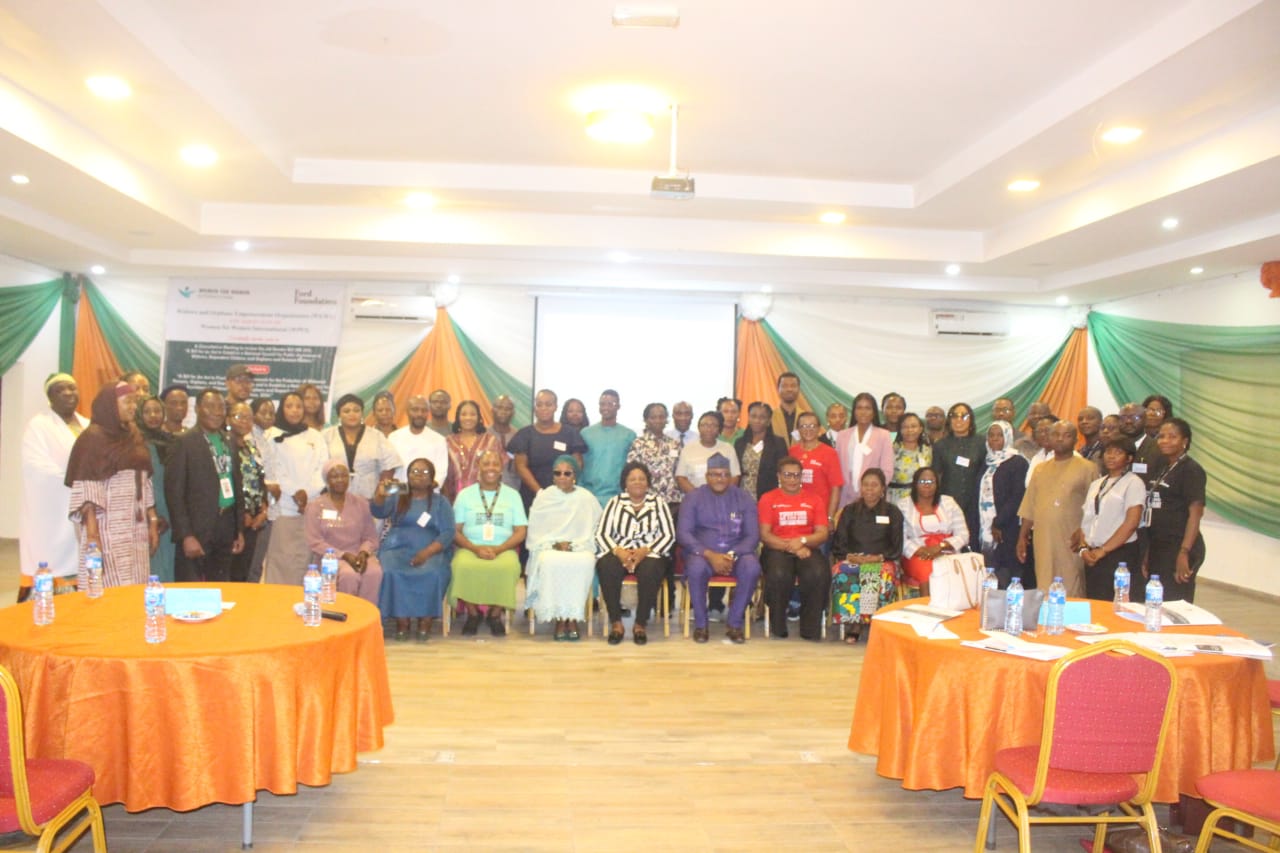As part of the effort to review and discuss the revised draft of “A Bill for an Act to Establish an Agency for Widows, Dependent Children, and Orphans in Nigeria,” the Widows and Orphans Empowerment Organization (WEWE), with support from Women for Women International, funded by the Ford Foundation, along with backing from the Office of the Chairperson of the Committee on Women in Parliament, has called on the federal government to create a national agency to address the needs of Nigerian widows, orphans, and dependent persons.
Speaking on behalf of the Speaker of the House of Representatives, the Deputy Chairperson of Women in Parliament, Hon. Blessing Amadi, explained that the bill is not just a legislative formality, but a significant step toward addressing the challenges faced by widows, dependent children, and orphans across the country.
She said, “This bill, with its detailed structure, aims to establish a National Agency for Public Assistance to Widowed persons, Dependent Children, and Orphans, creating a framework to support and protect these vulnerable groups. The Agency will provide Financial Assistance, Legal Aid for property rights, vocational training, and subsidized medical support, among other services. These efforts show our commitment to reducing economic hardship and empowering the most vulnerable in society.”
Member of Borno House of Representatives and one of the co sponsors of the bill, Hon. Zainab Gimba, also emphasised the need for the creation of an agency saying, “For years, we’ve debated laws on inheritance and property for widows and orphans. In many cases, they face dehumanising treatment in their communities. This is a serious concern for the National Assembly, which is why we have come together with all the necessary stakeholders to build the right legal framework and ensure the bill is passed.”
The U.S. CDC Acting Country Director, Suzanne Theroux represented by Dr. Olufemi Oke, also noted that with Nigeria being home to over 15 million widows, there is an urgent need for a strong legal and institutional framework with key areas of focus including access to education, healthcare, and housing, protecting inheritance rights, and eliminating harmful practices.

 Join Daily Trust WhatsApp Community For Quick Access To News and Happenings Around You.
Join Daily Trust WhatsApp Community For Quick Access To News and Happenings Around You.


